Jazz artists Mike McKoy, Juanjo Martín, Ferran Pardo, Oscar Cuchillo, and Pascual Monleón put on a memorable and soulful performance at ‘Café Mercedes Jazz’ very recently. An attentive audience gathers in an intimate venue where all eyes and ears are on the magnificent instruments that produce melodies that can only be described as casual magic. The lighting facilitates the effect of this ‘mágica’ as the audience sits admirably in the dark sombre of the room as the stage is brought to light with a blue hue. With bossa nova on the cards this evening, the harmonious encounter of American jazz and Brazilian samba is recognised immediately with the enticing melodies of bossa nova music, demonstrating an exhilarating fusion of saxophone sounds and an array of invigorating beats and rhythms. Courtesy of the exceptional vocals and linguistic prowess of singer Mike McKoy, the Brazilian Portuguese and English lyrics intertwine effortlessly in a unique blend of jazz and bossa nova.
The influence of João Gilberto shines through, as he played an instrumental role in shaping the very essence of bossa nova today. Similarly, the style and essence of American tenor saxophonist Stan Getz is encapsulated beautifully by Juanjo Martín, who skilfully uses the instrument to tell its own story through music, soothing the soul in highlighted performances ‘Desafinado, pero no demasiado’, and ‘Joy in your heart’.
The theme of the unattainable discussed in McKoy’s interview below is mirrored in songs ‘Você vai me abandonar’ and the well-known classic ‘The Girl From Ipanema’, as the lyrics portray in third person the perspective of beholding and observing a girl of beauty, yet focuses on the idea that they are far from reach, further highlighted by the melancholic melodies and lyrics: ‘he watches her sadly / he smiles but she doesn’t see’ (The Girl From Ipanema – Stan Getz/João Gilberto, 1964).
Therefore, within the soulful performances lies a sense of nostalgia, where the music captures the essence of a yearning for what was lost or never quite attained. Amidst this sentiment, however, a glimmer of hope emerges in the heartfelt melodies created, further enriched by the delicacy and tenderness of the guitar notes, perfectly executed by McKoy.
Another interpretation of the unattainable that the music provides is that the singer greatly admires the beauty of something almost seemingly surreal; an illusion in a world of mere mortality. It is a wonder to be able to experience love and beauty that seems like, to allude back to, casual magic, but is in fact something very real. And luckily, to the audience’s fortune, the beauty and enrichment that the skilful jazz transmitted this evening, is similarly unattainable in that it cannot be physically retained, but is remembered in the hearts and the souls of those who witnessed it.
Mike McKoy shares his stories and personal jazz history with charming qualities in an exclusive ‘24/7 Valencia’ interview:
24/7 VALENCIA: What got you into jazz initially?
MIKE MCKOY: I see jazz as language, and in the same way I acquired it through exposure. As a child, the language was functional for play and recreation, and I have nothing but the happiest of memories with my parents. My Dad was remarkable, we would listen to American jazz together – Dizzy Gillespie, and Louis Armstrong was a staple. Dizzy Gillespie said that ‘You can’t steal a gift. If you can hear it, it’s yours’, which I thought was really special. Happy memories in my teens were watching a programme called the Jazz Ship, which was a cruise with different jazz artists, and we played a lot of that at his funeral, which is a really symbolic thing for me. It is a vehicle through life – the ship and the soul and so forth, and there is something beautiful about that. At my father’s funeral we played the particular tune that I associate with that time. It was a soothing balm for me for a long time.
How do you fit your jazz schedule into your daily life? The frustration of needing to earn a living, and having limited time to play and practice does become an issue. I do a remarkable amount; I work 7 days a week, I am now self-employed. I’ve been teaching for the better part of 40 years. But I always make time to play and practice jazz. I play this music and do it in order to live and to survive. I got started as a child and it’s carried me through life.
Can you elaborate on the music genres that have been most pertinent in your life? What jazz has become in my view is an art music – formalised, almost to the extent of becoming chamber music, which is beautiful, but it doesn’t have that popular, kicking, pentatonic, natural, visceral power of rock music. Rock music has that effect on a human being that shakes you out of your complacency or even gives you the catharsis of feeling, turning your feelings of bitterness, resentment, pain etc. into ‘it’s going to be okay’. That visceral connection at the time for me was reggae and soul as a child. Reggae was a source of shame for me, given my race and background. Now it is jazz music that gives me that visceral connection. Jazz is, for me, a personal thing. It doesn’t need us – we need it.
What can the audience expect to see in your band’s performance? One of the main things you will see is this restraint, a form of self-control. We need restraint, and I’m interested in that. What you will experience is focus – this will be a meditative experience. You cannot avoid the insistent beat and then the melody on top; it will transport you. It is soothing and it is healing. My chosen style for this evening happens to be the epitome of cool for me; but if you play like this without the nuances of American jazz, it becomes “lounge swill”, and therefore the challenge is to play without devolving into lounge swill.
Why did you choose specifically to honour Stan Getz and João Gilberto? How I learnt the harmony was to copy those songs. My brother kindly bought me a guitar at university and I learnt to pick up these tunes on that. The songs I focused on were those of João Gilberto specifically – the way that he sings the bossa nova. Then there’s Stan Getz which is the improvisational sound. I later was able to join the dots between Lester Young and Stan Getz, and what’s called the ‘Cool School’. Lester Young is known largely for his participation in the band Count Basie. In Lester Young you hear the sound of what I’m going to call ‘cool’ and ‘restraint’; playing it cool and also being cool, not getting emotionally uptight about things. The bossa nova is the ultimate cool. João Gilberto used to sing out with a typical Latin, loud, percussive, boisterous, celebratory, street samba voice. But what he did was reduce it to something really mellow – no vibrato. Juanjo Martín is great to play with and really cares about the music. Our group performs together like a heartbeat.
Artists:
Mike McKoy – guitar and vocals
Juanjo Martín – tenor saxophone
Ferran Pardo – piano
Oscar Cuchillo – double bass
Pascual Monleón – drums
More info: https://www.facebook.com/mike.mckoy.52
Report by Melissa McCrow
Article copyright ‘24/7 Valencia’
All photos copyright Melissa McCrow/ ’24/7 Valencia’
CAFÉ MERCEDES JAZZ
Related Post
This site uses Akismet to reduce spam. Learn how your comment data is processed.


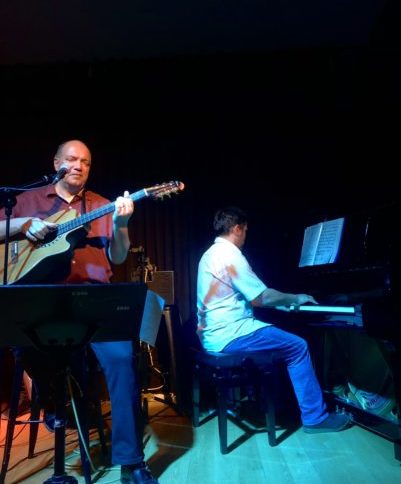
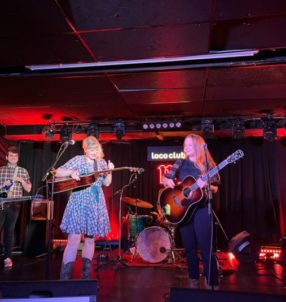

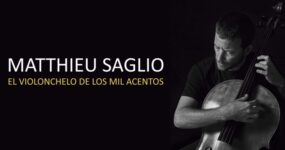
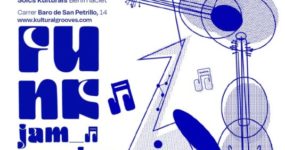
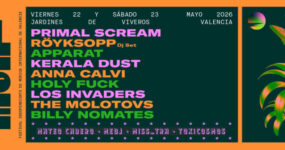


















Leave a comment